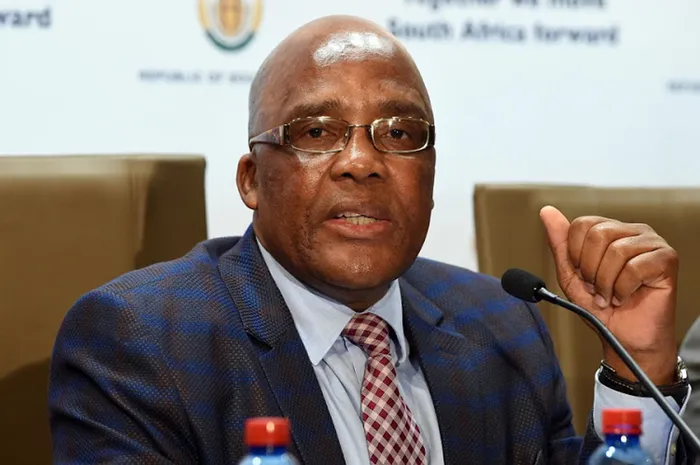
Health Minister, Aaron Motsoaledi, receives the long-awaited report confirming allegations of racial discrimination and unfair practices by some of South Africa’s leading medical schemes against Black healthcare practitioners.
Image: GCIS
The Board of Healthcare Funders (BHF) has dismissed the long-anticipated Section 59 report, which revealed significant allegations of racial bias and discrimination by medical health schemes towards Black health professionals.
Presented by panel chair Advocate Tembeka Ngcukaitobi, the report found systemic procedural unfairness and a deeply entrenched power imbalance that over the years has disproportionately and negatively impacted black medical professionals.
The inquiry, commissioned by the Council for Medical Schemes (CMS), launched in 2019, scrutinised practices by medical aid schemes such as Discovery, Medscheme and the Government Employees Medical Scheme (GEMS) between 2012 and 2019.
"We confirm the findings and recommendations in the interim report, that the procedure followed by medical schemes when they claw back monies allegedly owed by practitioners or when they investigate instances of fraud, waste, and abuse is unfair," said Ngcukaitobi.
Minister of Health, Aaron Motsoaledi, made the report public on Monday.
It found that in 2014 at GEMS, Black dental therapists were up to three times more likely to be flagged, while for Discovery in 2017, the report found that Black psychiatrists were 3.5 times more likely.
For Medscheme in 2018, the report suggests that Black anesthetists were 6.5 times more likely to be found guilty of fraud, waste, and abuse (FWA).
"Let me repeat this, we were not a court, we did not adjudicate individual complaints, we did not run a trial and make findings about unfair discrimination in terms of Section 9 or the Pepuda Act, we only considered the facts and the facts lead us to one conclusion that the evidence of the risk ratios before us showed racial discrimination to black service providers by the schemes.
"These risk ratios are not scientific certainties, but they are highly probable indicators of discrimination," Ngcukaitobi added.
While still studying the report, the BHF, a nonprofit company representing medical schemes and administrators, said it rejects the findings of the final Section 59 investigation.
"We still need to study the final report; however, we are disappointed that the Section 59 Inquiry panel has confirmed that it has upheld the findings made in the interim report released in 2021. We believe these findings are demonstrably and fundamentally flawed and, if allowed to stand, will open the door for runaway fraud and corruption in the healthcare sector," it said.
On alleged fraudulent claims, the BHF stated: "Fraudulent claims, over-servicing, abuse of benefits, and improper billing practices cost South Africa’s medical schemes around R30 billion each year. These losses directly impact the contributions and benefits of 9.7 million scheme members, the majority of whom come from historically disadvantaged communities. Fraud, waste, and abuse (FWA) inflate healthcare costs, reduce member benefits, and drive up premiums, placing disproportionate financial strain on working-class families."
The issues the BHF raised with the panel’s methodology included Unscientific methods to assign race, using surnames to categorise providers, and failing to account for exposure bias, which occurs when a group is more likely to be involved in a process or activity simply because of greater contact or interaction.
Cape Argus